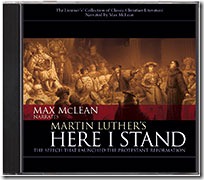I’ve been asked about my Bible reading plan on a couple of occasions in the last few weeks. What is it about the New Year and interest in Bible reading plans? Anyway, because of the interest and because a few people have asked, here is a short description of the one I follow.
First, though, a couple of quick pre-notes and observations are in order. This plan is what works for me; there are a lot of Bible reading plans out there and I have tired and failed at most of them. It would not be an exaggeration to say my reading plan is the product of many years of good intentions followed by failure. There is nothing unique about my Bible reading plan; all of the reading plans I have tried influenced, to one degree or another, the development of the plan I now follow. I have found that I need an achievable measurable goal to help me stick to the plan. The goal of this reading plan is simple and easily measurable: Read the entire Old Testament in one year and read the entire New Testament four times each year. A big part of making the goal achievable is to make sure the plan accounts for things that are not within my control. No matter how hard I try, I can’t seem to get more than 24 hours crammed into any given day and work, family, church, social, and other commitments take up a good chuck of those hours each and every day. The reason this plan works for me is that ‘fits’ into my life no matter what I manage to get myself into.
A couple of other things – don’t use an electronic Bible on your PC, smart phone, etc. for your daily reading. Instead use an old fashioned book type Bible with pages between two covers and use the same one every day– the value of which I learned when my dog ate Ecclesiastes (but that is a different story). Use the version of the Bible you are most comfortable reading but don’t use a paraphrase. I use a Bible without study notes to help keep me on task and I keep a pencil handy to make margin notes about things I want to come back to after I have completed my daily reading. Use bookmarks and finally, always begin each daily reading with prayer.
The plan consists of five reading lists – (1) Old Testament, (2) Psalms, (3) Proverbs, (4) New Testament, and (5) Acts in that order. Each day, I read three chapters from the Old and New Testaments, and one chapter each from Psalms, Proverbs, and Acts. Reading only 3 chapters each day from each of the Testaments allows for one complete reading of the Old Testament and four complete readings of the New Testament each year plus a complete reading of Psalms twice a year, Proverbs 12 times a year (I need it!), and Acts 12 times each year. Each day’s reading takes less than 40 minutes to complete and all of it combined allows for plenty of time during the year to achieve my goal of reading the entire Old Testament in one year and to read the entire New Testament four times each year— even when I miss (a) daily reading(s) because of things I cannot control.
Old Testament – start at Genesis Chapter 1 and read book by book all the way through skipping Psalms and Proverbs when you get to them. When you get all the way through the Old Testament, start over again at Genesis 1. Read 3 Chapters each day.
New Testament – start at Matthew Chapter 1 and also read book by book all the way through skipping Acts when you get to it. When you get all the way through the New Testament, start over again at Matthew 1. Read 3 Chapters each day.
Psalms, Proverbs, and Acts – start with Chapter/Psalm 1 and read Chapter/Psalm by Chapter/Psalm all the way through. When you complete that book, start over again at chapter/Psalm 1. Read one Chapter/Psalm from each book each day.
Oh, by the way, there is no rule against reading more chapters each day so when you get to those parts of Scripture that interest you more, by all means, keep right on reading. When events over take you and you find yourself, for whatever reason, unable to read the Scripture on a particular day, simply pick back up where you previously left off.
Q&A:
Q: Why not use an electronic Bible for the daily reading plan?
A: It doesn’t work for me and I suspect it does not work for most people. Using a traditional Bible has the additional advantage of not being dependent on electricity while being easily portable. For the most part, your Bible can (and should) go where you go, a traditional book type Bible makes that easier.
Q: Why not use a paraphrase of the Bible?
A: It’s not the Word of God.
Q: Which translation of the Bible do you use?
A: NASB, ESV, and King James. I have others that I use/consult often but those are the main three. Interestingly, for me, I find the KJV to be the easiest of the 3 to memorize; I use the NASB for my daily reading and the NASB and ESV about equally for most of my Bible Studies. Yes, I have and use an electronic Bible.
Q: Is there a reason I should try your Bible reading plan?
A: No, not really. If you have one that works for you now don’t change. If you do not have one, feel free to try this one out. If you do not have a daily Bible reading plan, I do urge you to start one – if nothing else, pick up the Bible every day and read it. Few other things are more important.
Q: Besides yours, do you have another Bible reading plan that you would recommend?
A: I’m not really recommending my Bible reading plan, just pointing out that this is what works for me. If you feel it would also work for you, try it; if you feel that another reading plan would work for you, try that one. Just have a daily Bible reading plan! Two reading plans I would recommend for others include the McCheyne Bible reading plan and Professor Grant Horner’s Bible Reading System. Of the two, I’m most comfortable with Professor Horner’s.
Q: Isn’t your Bible reading plan like Professor Horner’s Bible Reading System.
A: Yes, except it is different.
Q: I’m a Christian and don’t feel that I need to read the Bible every day.
A: OK, that’s not a question but if you have read this far you know something is missing – either you need a daily Bible reading plan or you are not a Christian—either way time for some serious self-examination on your part.
Q: So what are you saying?
A: Get and use a daily Bible reading plan that works for you!



 Posted by jerryk
Posted by jerryk 









